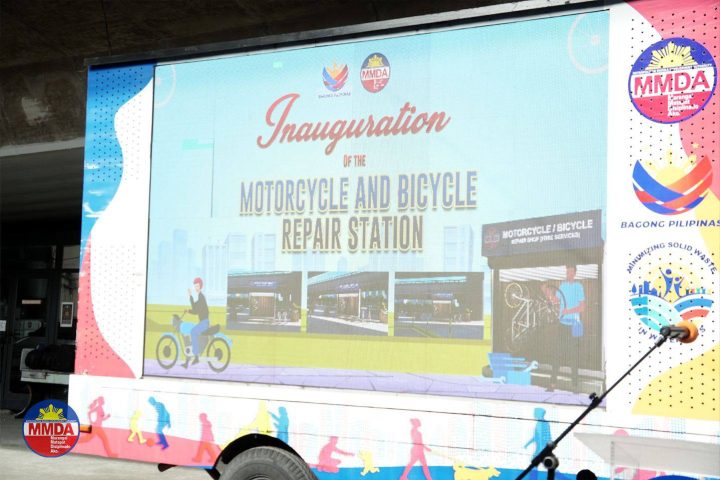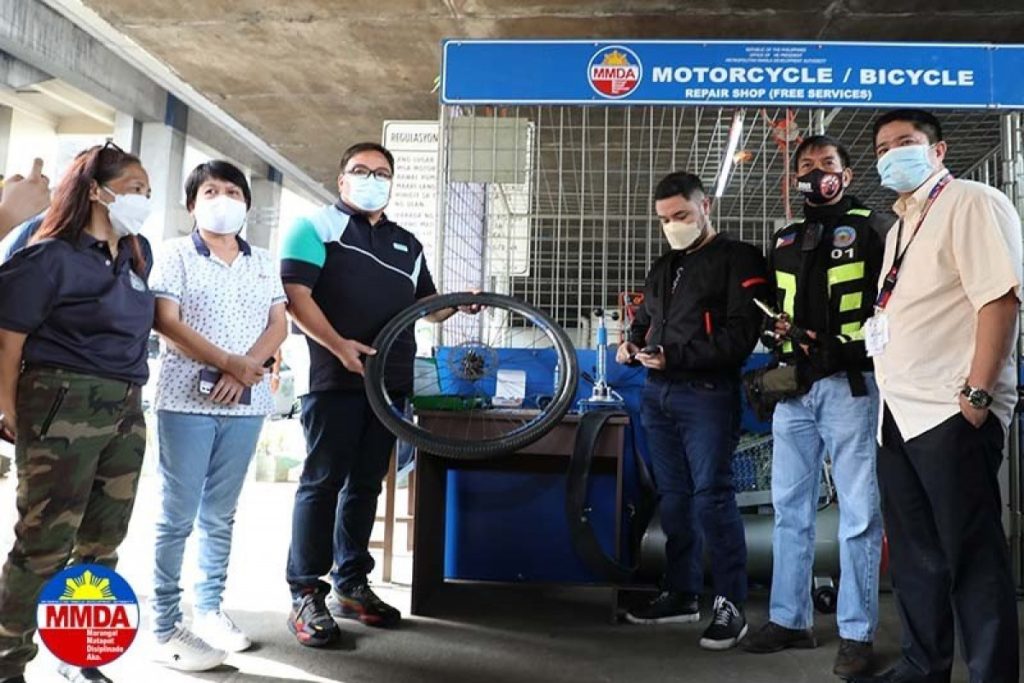
The Metropolitan Manila Development Authority (MMDA) has unveiled a new Motorcycle and Bicycle Repair Station (MBRS) beneath the Quezon Avenue flyover in Quezon City, offering free roadside assistance to riders on one of Metro Manila’s busiest corridors. Housed in a repurposed container van, the facility is stocked with tools for basic tune-ups, tire repairs, and vulcanizing, while trained MMDA personnel stand ready to help motorcyclists and cyclists struggling with mechanical issues or flat tires.
MMDA Chairman Atty. Don Artes explained that the Quezon Avenue MBRS is part of a broader push—championed by former Chairman Atty. Benhur Abalos and aligned with President Ferdinand Marcos Jr.’s infrastructure agenda—to bolster road safety and support the growing community of two-wheel commuters in the capital. “This station provides a vital lay-by where riders can address mechanical problems quickly, helping prevent accidents and easing traffic back-ups,” Artes said during the inauguration.
Operating daily from 6 a.m. to 10 p.m., the new station joins existing MBRS locations on EDSA at Ortigas and in front of the DILG office, as well as facilities along Roxas Boulevard, Commonwealth Avenue, and Ortigas Avenue. The MMDA has also announced plans to roll out additional repair points along C5, Baclaran, and Monumento to ensure that assistance is never far away for those who choose motorcycles or bicycles as their primary mode of transport.

Department of Transportation Undersecretary Mark Steven Pastor praised the initiative as a boon for “active mobility,” noting that quick-response repair services help riders stay on the move while minimizing disruptions to traffic flow. Private sector partners were also on hand: Angkas co-founder George Royeca, Grab Philippines’ Ira Cruz, and Alyssa Belda of the Make It Safer Movement (MISMO) attended the ribbon-cutting, underscoring the project’s collaborative nature.
The MBRS program responds to data from the Philippine Statistics Authority showing that motorcycle registrations soared during the pandemic, now comprising roughly 30% of vehicles on Metro Manila roads. With breakdowns and roadside emergencies contributing to congestion and safety hazards, the MMDA’s expanded network of repair stations aims to keep riders safer and traffic moving smoothly.















